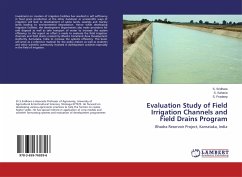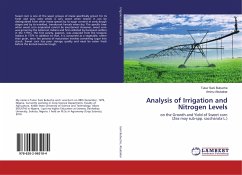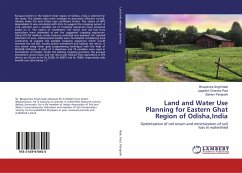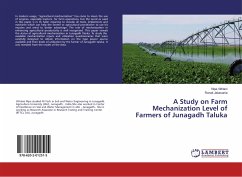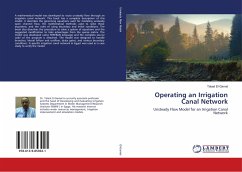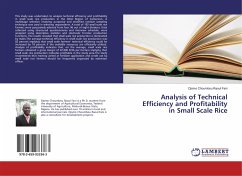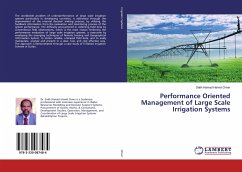
Performance Oriented Management of Large Scale Irrigation Systems
Versandkostenfrei!
Versandfertig in 6-10 Tagen
29,99 €
inkl. MwSt.

PAYBACK Punkte
15 °P sammeln!
The worldwide problem of underperformance of large scale irrigation systems particularly in developing countries, is addressed through the improvement of the internal decision making process, by utilizing the feedback information from the evaluation and monitoring process of the system performance. The difficulty encountered in collecting field data by conventional field observations, which is the main reason hindering the performance evaluation of large scale irrigation systems, is overcome by employing the emerging techniques of Remote Sensing and Geographical Information System, to obtain r...
The worldwide problem of underperformance of large scale irrigation systems particularly in developing countries, is addressed through the improvement of the internal decision making process, by utilizing the feedback information from the evaluation and monitoring process of the system performance. The difficulty encountered in collecting field data by conventional field observations, which is the main reason hindering the performance evaluation of large scale irrigation systems, is overcome by employing the emerging techniques of Remote Sensing and Geographical Information System, to obtain reliable, unbiased field data, and to easily manipulate, analyze and present in a clear, fast, and cost effective way. The approach is demonstrated through a case study of El Rahad Irrigation Scheme in Sudan.




